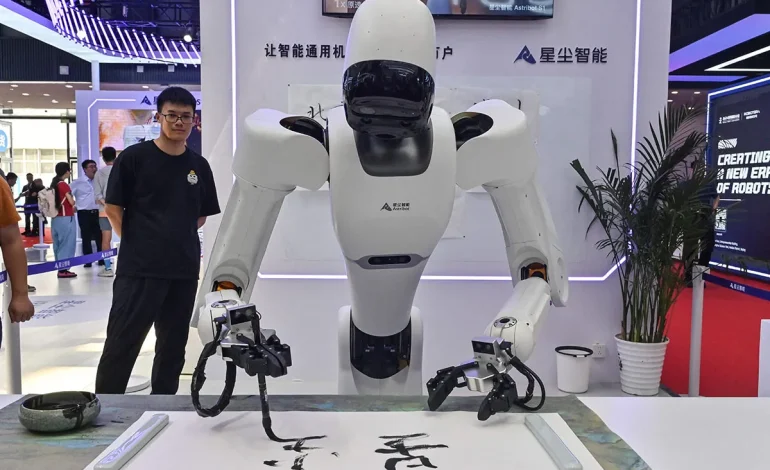China’s Smart Manufacturing Pilots Integrate AI and Robotics

China has expanded its smart manufacturing pilot programs to integrate artificial intelligence (AI) and robotics, enhancing efficiency, quality, and operational precision across multiple industrial sectors. The initiatives, launched in cities such as Shenzhen, Suzhou, and Shanghai, combine automated production systems with advanced analytics to optimize workflow, reduce costs, and improve product consistency.
Robotic systems are deployed for tasks requiring precision, speed, and repetitive execution, including assembly, welding, and packaging. AI algorithms analyze production data from sensors and machines in real-time to detect anomalies, forecast maintenance needs, and adjust operational parameters dynamically. This integration reduces downtime, minimizes human error, and ensures consistent quality standards across high-volume manufacturing processes.
The pilot programs involve collaboration between local governments, technology companies, and manufacturing enterprises to provide infrastructure support, technical guidance, and workforce training. Employees are educated on operating AI-driven systems, monitoring automated production lines, and integrating robotics into traditional workflows. These measures ensure smooth adoption and operational safety.
Industry experts note that AI and robotics integration accelerates industrial upgrading, enabling manufacturers to transition from labor-intensive processes to high-value, technology-driven production. The combination of predictive analytics and automated machinery enhances scalability, responsiveness to market demand, and operational flexibility, strengthening China’s competitiveness in global manufacturing.
In addition to production efficiency, the pilots support sustainable manufacturing practices. AI systems optimize energy consumption, reduce material waste, and monitor environmental conditions on factory floors. Robotics reduce occupational hazards by performing dangerous or strenuous tasks, enhancing worker safety and compliance with regulatory standards.
Early results from the pilot programs indicate improved production speed, reduced operational costs, and higher product quality. Insights gained from these initiatives inform best practices for nationwide deployment and provide benchmarks for the integration of AI and robotics in other industrial sectors, including electronics, automotive, and consumer goods.
China’s smart manufacturing pilots exemplify the strategic use of technology to modernize industrial operations. By combining AI, robotics, and data analytics, manufacturers can optimize efficiency, quality, and sustainability, creating a blueprint for future industrial transformation. The initiatives position China as a global leader in intelligent manufacturing and demonstrate the potential for technology-driven industrial growth.






